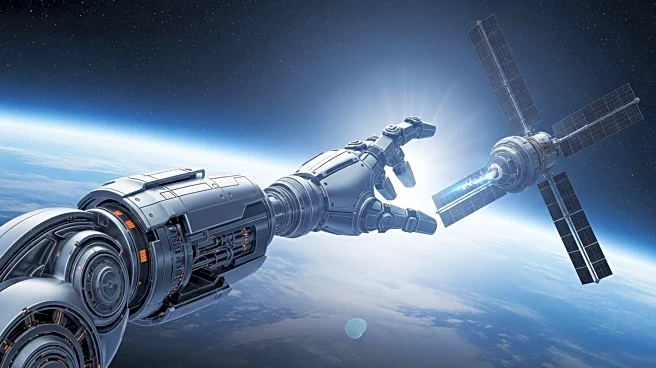What's Happening?
Icarus Robotics has announced a $6.1 million seed funding round led by Soma Capital and Xtal, with participation from Nebular and Massive Tech Ventures. The startup, founded by Ethan Barajas and Jamie Palmer, aims to deploy robots in space to automate tasks traditionally performed by astronauts. These tasks include cargo handling, equipment maintenance, and scientific experiments. Icarus plans to teleoperate robots initially to collect data, with the goal of developing fully autonomous models. The company is collaborating with Voyager Technologies to bring its robots to the ISS by 2027, addressing labor shortages and logistical challenges in space.
Why It's Important?
The deployment of robots in space stations could revolutionize space operations by reducing reliance on human labor for routine tasks. This shift is crucial as the cost of maintaining astronauts in space is significantly high, and their time is often consumed by non-scientific activities. By automating these tasks, Icarus Robotics aims to enhance productivity and allow astronauts to focus on critical research. The initiative also addresses the broader challenge of labor scarcity in space, paving the way for more efficient and cost-effective space exploration. The funding supports the development of advanced robotics technology, contributing to the future of space commercialization.
What's Next?
Icarus Robotics is preparing for a 2027 launch to deploy its robots to the ISS, with plans for zero-gravity test flights in the coming year. The company is focused on building robust AI systems capable of operating in space, using simulated data to train its robots before deployment. As the project advances, Icarus aims to expand its robotic workforce to multiple commercial space stations, potentially including operations on the Moon and Mars. The initiative seeks to establish a scalable robotic labor force in space, supporting astronauts and enhancing scientific research capabilities.








